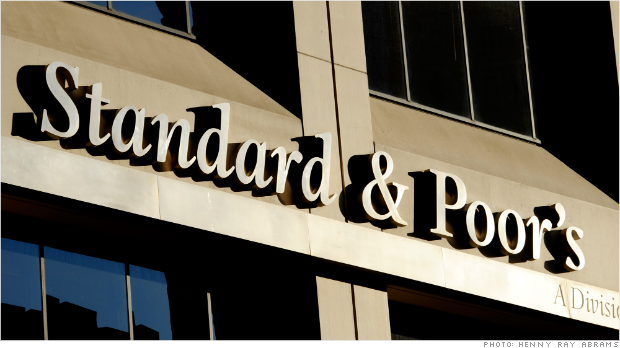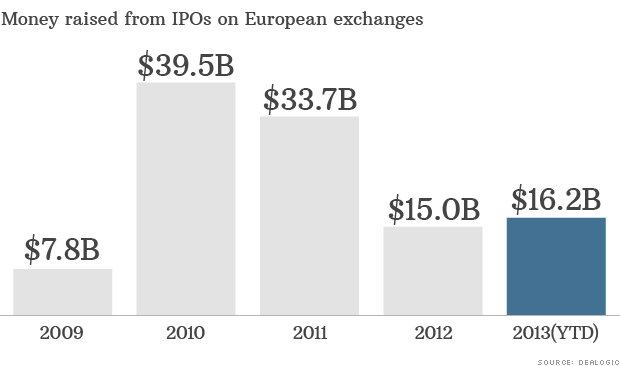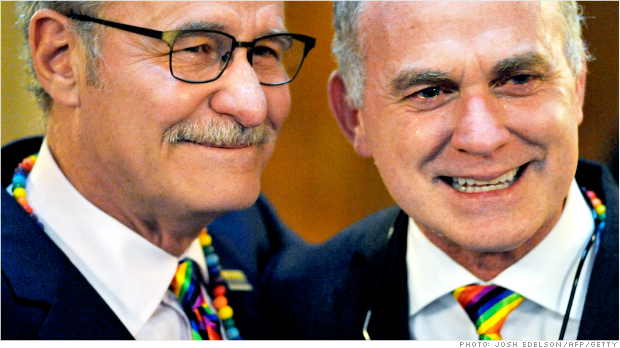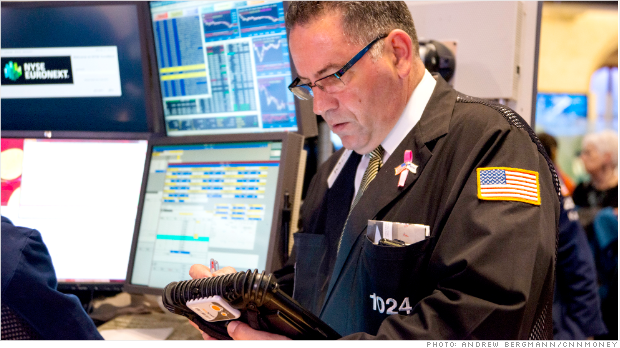
Radio giant Dave Ramsey knows debt and savings, but some of his advice drives pros nuts.
(Money Magazine)
Normally he uses that skill in the service of doling out financial advice to the more than 7.7 million people who tune in to his radio show every week, which makes him the third-most-popular radio personality in the country, behind Rush Limbaugh and Sean Hannity and ahead of Glenn Beck. Or to the thousands more who throng to his live events, like his planned appearance at a 3,000-seat arena in New Jersey in November. Or the readers of his four bestselling books, or participants in his Financial Peace University, a 13-week video course offered at local sites around the country, often churches.
In June, however, Ramsey took to Twitter and engaged a very different audience: financial advisers.
"I help more people in 10 min. than all of you combined in your ENTIRE lives," Ramsey tweeted at a group of advisers in response to a discussion they had kicked off about him. For good measure, he ended his tweet with the hashtag #stophating. Strong words, but so were those of the advisers.
Carolyn McClanahan, a financial planner from Jacksonville, had said she "despised" Ramsey's investing advice. Carl Richards, a planner who frequently contributes to the New York Times, called it "crap." James Osborne, who practices in the Denver area, said it "would be malpractice if he was a real professional."
Ramsey's tweet sparked more debate online, in barbed blog posts from other advisers and investment writers. Which goes to show that Ramsey is one of the most compelling figures in the world of financial advice, as well as a polarizing one.
When MONEY readers were asked in a recent survey whom they would most want to read more about, Ramsey ranked near the top. It makes sense: He's an eloquent, relentless preacher for habits any reader of this magazine would embrace, like saving a lot, staying out of debt, and planning for the long run.
Yet he gives investment advice that drives many financial advisers crazy, and with some cause. In Ramseyland, you can let everything ride on equities, and the bull market of the 1980s and '90s goes on forever.
Related: Sallie Krawcheck on trusting Wall Street again
Ramsey's scrap with advisers is also over who are best qualified to give investment advice -- and how they should be paid. The radio star has aligned himself, and part of his business, with brokers who earn commissions selling mutual funds with front-end sales charges. Many of Ramsey's critics are financial planners who are paid on a fee basis, no matter what their (mostly well-heeled) clients buy. Such critics have been trying to pick apart his ideas for years, but Ramsey has grown only more popular.
The culture warrior of personal finance
This is quite a turn for a man from Tennessee who likes to call himself "a complete failure." Ramsey's origin story of collapse and rebuilding, told again and again on his radio show and at live events, has become the cornerstone of his popular appeal.
By the time Ramsey was 26, he has written, he had become a real estate millionaire, but the leverage inherent in the business caught up with him. Ultimately, Ramsey has said, he had to declare bankruptcy.
Ramsey, who declined to be interviewed for this story, attaches a simple lesson to this: Debt is corrosive, almost to the point of being a moral failure. "The borrower is slave to the lender," Ramsey says, invoking Proverbs.
Ramsey is overtly religious, and his for-profit Financial Peace University is billed as "a biblically based curriculum that teaches people how to handle money God's ways."
Ramsey, 53, got his start in radio with a show in Nashville in 1992. By the time he came to the attention of the coastal elites in the mid-2000s, his show was already a national force, with 2 million listeners. Ramsey tells people that no matter the state of their financial lives, there is hope for recovery if they will just take responsibility and start to take action.
"He is talking about the basics of morality and character," says Michael Harrison, the publisher of Talkers, a radio-industry trade magazine, and someone who has followed Ramsey for years. "His core message is of culture: We are a society that is drowning in debt. Major institutions are in debt. The radio stations that carry his show are in debt. The government that provides the airwaves for the radio show is in debt. People are stressed because people live in a very tempting culture."
Ramsey's credibility is a valuable commodity. Zander Insurance Group, a Nashville-based company that sells term life insurance, has Ramsey's face and warm endorsement plastered all over its website. Co-owner Julian Zander, who calls Ramsey "my buddy, my mentor," attributes all of his company's out-of-state life insurance sales, the majority of their life business, to Ramsey.
Ramsey also lends his name to a mortgage company, a business that buys gold, and family web-filtering software. He's extended his brand to the grass-roots level too: Go to Ramsey's website, type in your contact information, and his company, Lampo Group, will put you in touch with an "endorsed local provider" (ELP) who can give you investment advice that is supposed to be consistent with Ramsey's philosophy.
Rich-people problems
What's notable about the war of words between Ramsey and the financial planners is that they are largely talking past one another. Top financial advisers counsel the affluent about the fine points of how to invest their money, maybe along with estate planning and sanding down tax bills. Ramsey focuses his advice mainly on people struggling to get out of costly consumer debt. His bestselling book The Total Money Makeover has about two pages describing which mutual fund to invest in. There's an entire chapter on how to save $1,000.
In fact, the very first thing that Ramsey says in "Dave's Investment Philosophy," at daveramsey.com, is that you may not be ready to invest yet.
First you have to follow "Baby Step 1" and save that $1,000. Step two is to pay off all your debts besides your mortgage, and step three is to build up an emergency fund that has six months' worth of expenses in it. Only then can you move on to investing.
It's likely that many of Ramsey's listeners are on step three or earlier, dreaming of the day when they might start investing. According to the Census Bureau, half of U.S. households with unsecured debts owe $7,000 or more. (That's not counting mortgages and car loans.) And in a recent survey by the Employee Benefit Research Institute, 57% of U.S. workers said they had less than $25,000 saved.
Under Ramsey's plan, you budget carefully, cut up all your credit cards, and use only cash, distributed into different envelopes dedicated to different types of expenses. With the money left over, you "snowball" your debts, paying them off in order of size, smallest first. As Ramsey points out, it makes more sense mathematically to target high-rate debt, but the idea is to quickly see evidence that you are on your way to being debt-free.
You don't have to be living on the financial edge to find such advice helpful. "It sounds unbearably tedious," wrote economics columnist Megan McArdle in a blog post. "But it's actually incredibly freeing. I have never before felt like I had total control over my money."
Planning like it's 1999
For many in Ramsey's audience, being able to invest is the brass ring. Where you actually stash your extra money after you've slain the debt and built up your bank account is a luxurious detail. But it's worth saying this forthrightly: Ramsey's investing advice is weak and could get you into trouble if you follow it too closely.
Some of Ramsey's message is solid: He's pointedly skeptical of often high-cost products like variable and index annuities. Other tips, though, are strangely vague. For example, in The Total Money Makeover he says to put 25% of your portfolio in "aggressive-growth funds," which, he then clarifies, are sometimes called "small-cap" or "emerging markets" funds -- advice that might put the uninitiated into either a fund specializing in young U.S. businesses or one buying Brazilian and Chinese conglomerates.
Related: How much does your money manager cost you?
More consequentially, Ramsey advocates a portfolio of only stock funds, with no bonds. (He does say that those with low risk tolerance might add a balanced fund, which includes some bonds as well as stocks.) Given the volatility of stocks, that's aggressive advice, to say the least.
"Generally you want a portfolio that gets safer as you age, with stocks but an increasing tilt into bonds and cash," says Christine Benz, director of personal finance at the fund research group Morningstar.
Ramsey seems to be so dismissive of bonds because he's bullish on stocks. How bullish? He often speaks of earning 12% a year -- a number that's been a lightning rod for his critics. Ramsey has sometimes hedged this, but visit his website and you'll find blog posts with headlines like "Yes, You Can Make 12% With Your Mutual Funds" and "The 12% Reality."
In fact, this is unhinged from the reality of the investing world. "I don't see how anybody can count on 12% annual returns," says William N. Goetzmann, professor of finance at Yale. Part of the issue is a wonky-sounding math point. Correctly calculated, the long-term return on stocks since 1926 is closer to 10% -- before taking out mutual fund fees and front-end sales costs.
And if you follow Ramsey, you're likely to pay sales charges: Outside a 401(k), he recommends A-share "load" funds sold via advisers. That's because, he says, people need a pro to help them stick to their plan and not jump out when an investment underperforms.
The other problem with 12% is obvious: the experience of the past 13 wild years. While some periods, like the 1980s and '90s, do deliver double-digit returns, investors know they can also see long stretches -- perhaps in their peak saving or retirement years -- earning a lot less.
Ramsey recently debated that subject on his radio show with Brian Stoffel, a columnist for The Motley Fool, who wrote about that 12% number in the wake of the Twitter fight. Stoffel said 12% was unrealistic; Ramsey said that it wasn't, and that if his listeners had taken his advice and followed it for the past 20 years, "they would have had a pretty strong rate of return." He challenged Stoffel "to analyze that and figure that out," which Stoffel obviously couldn't do on a live radio show.
But here are the numbers, using data from Morningstar. If someone invested equally in four mutual funds corresponding to Ramsey's plan, using the kind of load-charging funds he recommends, over the past 20 years the annualized return would have been 7.6%.
That said, if you take Ramsey's very wise advice to save 15% of your income a year, you'll be doing okay in the end whether you earn 7.6% or 12%. The real pitfall of a 12% assumption is what it can do to you after you retire, if you use it to justify too high a withdrawal rate.
In The Total Money Makeover, Ramsey works back from 12%, subtracting 4% for inflation, and says you should be able to live on an income equal to 8% of your nest egg. Wade Pfau, a professor at the American College of Financial Services, argues that Ramsey is making "a classic mistake of assuming a fixed rate of return on one's investment and forgetting about volatility."
As with the 12% figure, Ramsey sometimes hedges 8% -- and the actual mechanics of the withdrawal strategy in his book are hazy. If you simply take out 8% of your portfolio balance every year, your income could drop 40% after a year like 2008. Alternatively, if you took out 8% your first year and then increased your income to keep up with inflation in the following years, you'd risk running out of money fast if you hit bad markets early in your retirement.
Related: The basics of investing
On his own blog, Pfau points to a well-known study of withdrawal rates: With an all-stock portfolio, using actual returns from 1926 to 2009, an 8% initial rate would have a 24% chance of draining your account in 15 years. That's why planners often recommend half that rate.
In fairness, Ramsey says you should get your real investment advice from a qualified pro -- such as one of his endorsed local providers. Since ELPs are independent, there's no way to judge their overall advice, but to get a feel for what they do, I set up an appointment.
Continued: Meeting an "endorsed local provider" (ELP)

![]()











